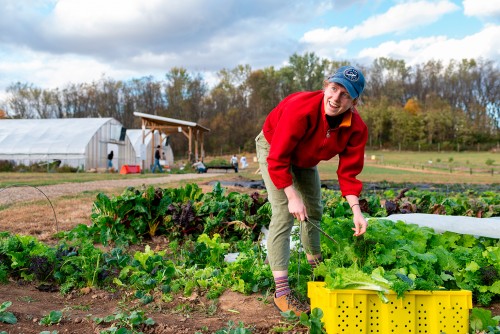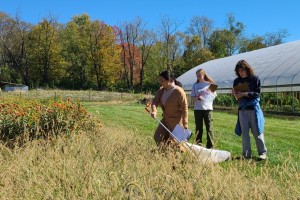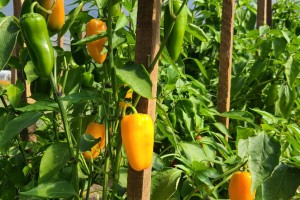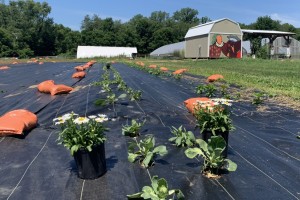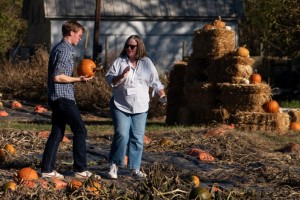Students experience the full cycle of farming on this 10-acre farm, located within walking distance to campus. From planting seeds to harvesting crops, from growing mushrooms to raising chickens, students help ensure that crops are well maintained, mushrooms have the perfect growing environment, and animals are well tended — a way of life that is uniquely demanding and rewarding.
The value of the experience is incalculable. Some of the students who work at the Kenyon Farm plan to operate their own farms when they graduate. Others are interested in working in public policy regarding food safety and sustainability issues. This hands-on experience is a chance to participate in agricultural life to its fullest within an academic environment.
Hands-on experiences and academic engagement.
Students engage with the Kenyon Farm as volunteers, workers and summer interns. Kenyon classes also visit the farm for tours and hands-on activities, and select students work closely with faculty on farm-related research projects.
A focus on innovation and sustainability.
The Kenyon Farm folds liberal arts educational experiences into an active farm that grows produce and raises small livestock while incorporating many regenerative farming practices.
Interdisciplinary research opportunities.
The Kenyon Farm supports faculty research projects that span the curriculum. Students can get involved with these projects by reaching out to the individual faculty members.
A resource for the entire community.
In addition to selling fresh produce and eggs at their farm stand, the Kenyon Farm hosts a variety of events such as a Family Weekend pumpkin patch featuring student musicians, a campfire and free pumpkins.
Gambier, Ohio 43022
